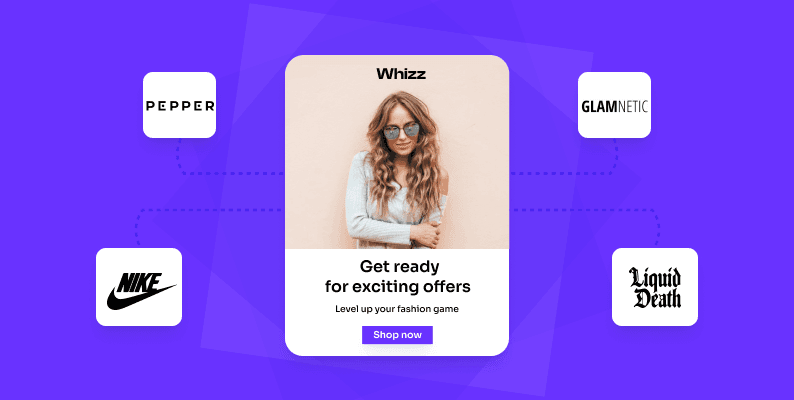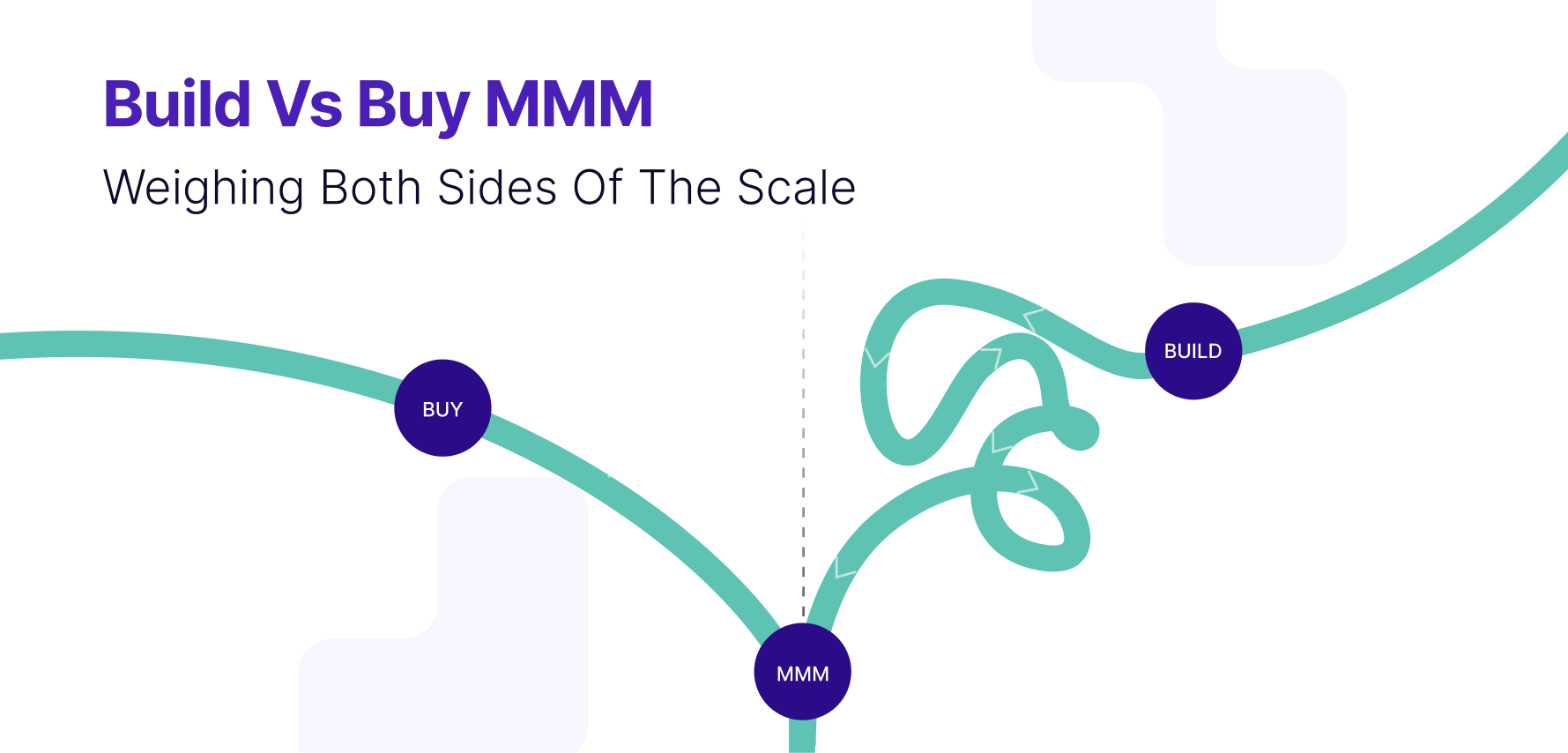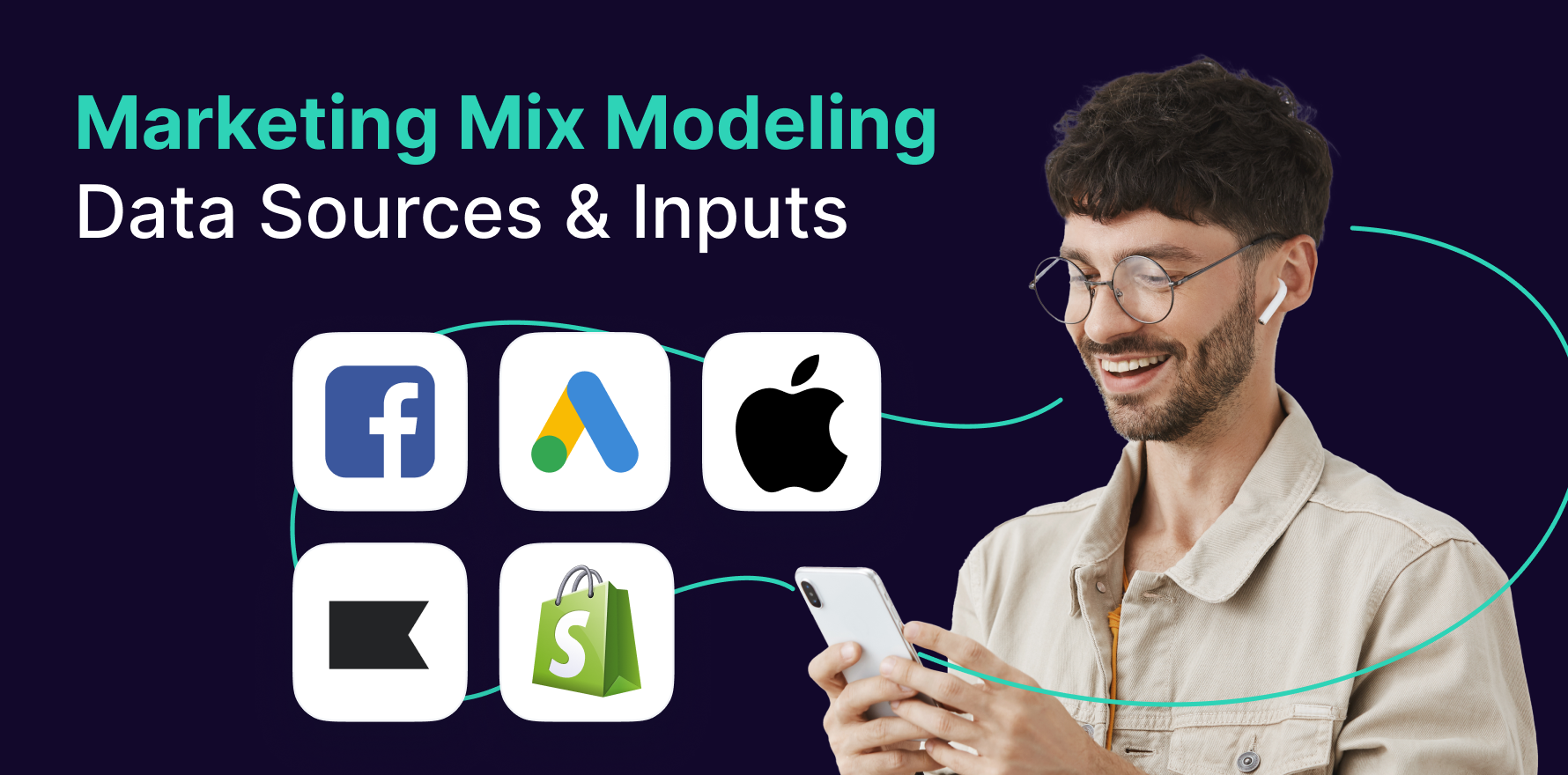Storytelling for brands is a method of building emotional bonds between customers and a company’s products or services. Why is brand storytelling important? Brand storytelling centers on establishing a connection between your brand’s mission and the beliefs of its target audience. Beyond the reach of conventional advertising, storytelling can aid in creating a unique identity for a product or service.
10 Great examples of brand storytelling
Looking at brand storytelling examples is a fantastic approach to obtaining inspiration while learning from storytelling tips and concepts to help you write a better marketing story for future campaigns.
1) Nike
When thinking about the many ways a brand can use storytelling in its communications and content strategy, it’s hard not to think of Nike’s “Just Do It” campaign, which debuted nearly thirty years ago.
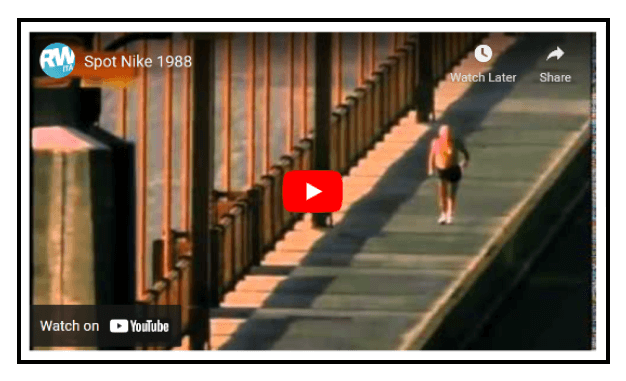
The campaign was so powerful that people contacted Nike to share their own “just do it” stories, whether it was leaving a dead-end job or starting a healthier lifestyle. As the adage goes, “the rest is history.”
From 1988 to 1998, Nike grew from $877 million in worldwide sales to $9.2 billion thanks to the success of the “Just Do It” advertising campaign and the company’s high-quality products.
2) Blume
Men and women have health problems that are unique to them because they are opposite sexes, and then again every individual’s body is different. So, as a skincare solution, Blume talks about Polycystic ovary syndrome (PCOS) and other problems, as they impact a woman’s appearance. They destroy taboos and let their buyers freely express themselves through reviews and stories, be it on Instagram or their YouTube channel.
In most cases, the buyers express their problems and this becomes a part of the brand storytelling. This establishes a connection with the viewers, and the women among them can very well relate. Again Blume is all about reassurance.
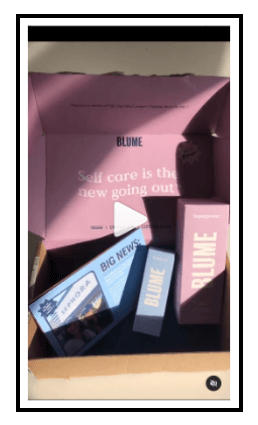
Which woman wouldn’t love to hear “Self-care is the new going out”, especially if they are at home taking care of their kids. That’s Blume’s tagline. Blume is all about assurance, by being organic, vegan, and cruelty-free and still giving hope to so many women of working overnight wonders for their skin, and that’s why it is such a loved brand.
The founder mentioned in an interview that Blume is aimed at raising the self-esteem of girls who are growing up. Today women do not talk about periods as something of a taboo, but rather as something they are proud of and what they need to care for. And that’s how Blume grew to a successful 7-figure in US dollars in just one year!
3) Everlane
Everlane says in a video for their “Made for the track collection”, “Clothing should be timeless because we as people are ever-changing”.
This single sentence encapsulates their brand, and connects very well with their tagline, “Made to live in. Made to live on”. And just because they are organic, sustainable, and durable, they do not drop the word “premium” either in their communication. Who wouldn’t want a brand with such concern for the world and for the human beings who form this world? Here’s a snip on World Earth Day from their Instagram feed.
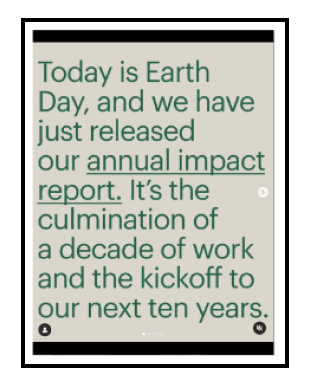
Established in 2011, their clear vision is a testament to how easily they have grown to 100 million in just 6 years!
4) Dollar Shave Club – ‘a great shave for a few bucks a month’
Dollar Shave Club’s video ads appeal to both the logical and the emotional mindset of the buyer. Dollar Shave Club poses the following questions, “Why is it so difficult to buy a razor?”, “Why are they so damn expensive?”, and “Do you really need flashing lights, flexible handles, and 10 blades?”. All very valid questions for any man looking for a clean shave. And when they tell you you can have a shave for only a dollar, that’s inviting! An invitation to self-care and grooming for every man out there.
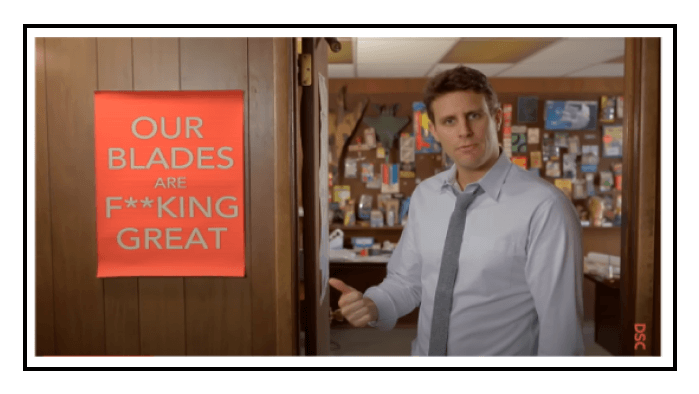
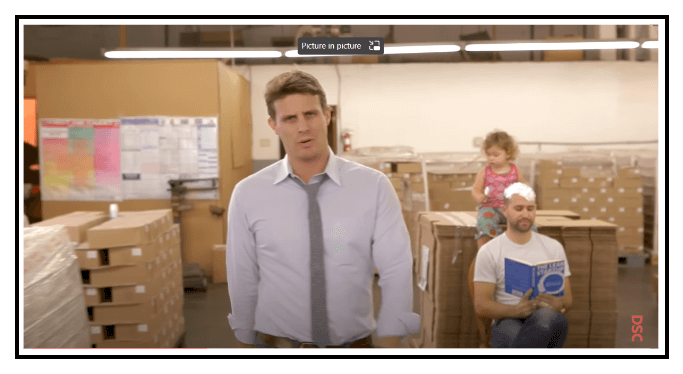
Or when they tell you like in this video from 2012, featuring the founder Michael Dubin that even a toddler could use it, and of how safe it is too! He also goes on to say in the video how his company generates jobs for people, to show that they are ethical as well. All this with a great sense of humor, something that is traditionally missing in most of the razor ads we see, where it’s bravado or macho or “just buy it for the number of blades”, being churned out over and over again.
And this video worked in their favor. They were so successful that in 2016, Unilever bought the company for over $1 billion. It took them just four years to reach millions of people with their razor-sharp wit. Pun intended. If that’s not evidence of how great and shining an example of brand storytelling this is, we wonder what could be!
5) Pepper
Pepper is a bra company focused on giving AA, A, and B chest-size women a cosmetic and glamorous uplift.
Their tagline “Bras for small boobs” couldn’t get better. While the entire industry focuses on C 36 size bras, Pepper is doing the exact opposite, and women everywhere are rejoicing and responding positively to the brand.
Pepper quotes on their website, “empowers women to feel extra special, supremely confident, and proud of their small boobs”. Their ultimate goal as they say is to relook and redefine beauty standards. Their website features women of multiple ethnicities and across all ages, again reinforcing this point.
The rich visuals and their open commitment to women, from those who make their bras to those who wear them, and sustainability also sets them apart as a brand.
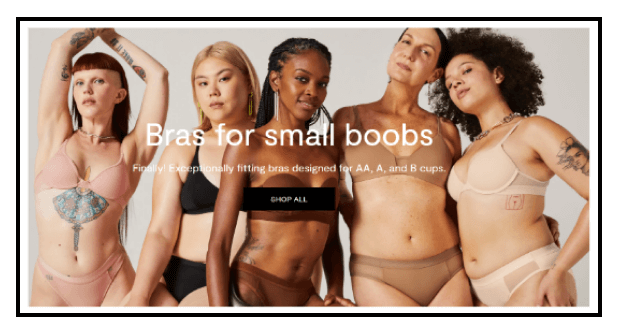
6) Diaspora
The Diaspora Co. is a responsible, community-driven, sourcer of original spices from India. A company headquartered in the US, The Diaspora Co. knows the pulse of the audience. They bring a sense of warmth, a feeling of community consciousness, a connection with India, and a rustic feel in every video they make which captures the attention of the customer.
They procure every spice from its native location and support the communities in each region by doing so. This also makes every spice blend authentic and irreplaceable, two characteristics that help define a brand. Add affordability and brilliant, mouthwatering recipes on Instagram and you have now a potent mix well suited for incredible brand storytelling.
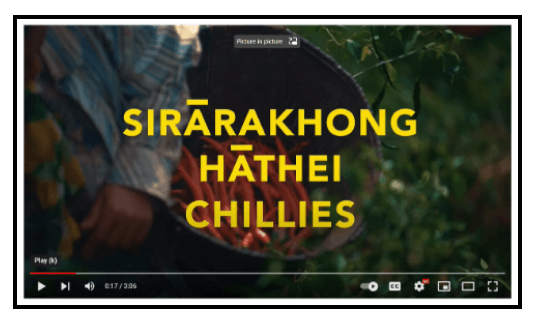
An example of brilliant storytelling is the above video from their YouTube channel where the owners of a chili plantation called Hill Wild in Manipur, India are sharing the secrets behind how they get their Sirarakhong Hathei red chilies for Diaspora.
They explain how extreme care is taken in hand-picking only the freshest red chilies and how they are smoked over the fire on bamboo to bring that nutty flavor out of them. The video is very “organic” and the “care” that goes into the process of procurement convinces the customer to make the purchase.
7) August
It’s past August, but we still can’t get over August! The brand, we mean. Upfront on their website, they describe how eco-friendly the pads are. What originally took 500 to 800 years to decompose, now takes 12 months only, that’s faster decomposition by at least 500 times! Only 100% organic cotton is used, which makes it very safe. And they do not drop the ultra-comfy tag either.
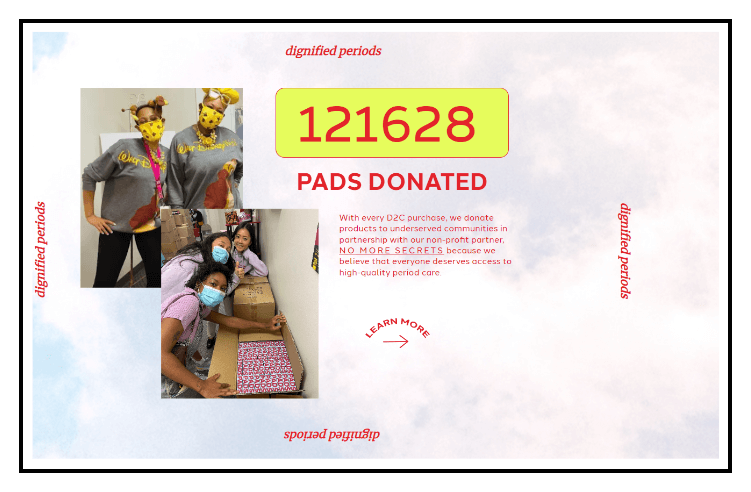
Add a generous mindset to the already ethical one, and you have a winning combination. With every DTC purchase, August donates a product to someone from an underserved community, in partnership with a non-profit. To date, they have donated more than 121,628 pads as pointed out by the ticker on their website. That’s 12168 dignified people all over the world, who have benefited from a customer like you. This ought to put a smile on the customer’s face. August thus not only has a story to tell but makes every customer a part of that brand story.
8) TOMS – “One for One”
As we saw with the brand August and their commitment towards satisfying the sanitary needs of hundreds of thousands of women all around the world, having a moral obligation can not only change the world but win its favor as well.
With the sales of their line of spectacles, TOMS promised eyesight for several people in developing nations and they were able to give eyesight back to at least 728,000 people or more. Similarly, with their ‘one for one’ campaign, they brought the comfort of shoes to many people who couldn’t afford them, so that when anyone bought their overpriced shoes, they also contributed money towards a donation to help someone else.
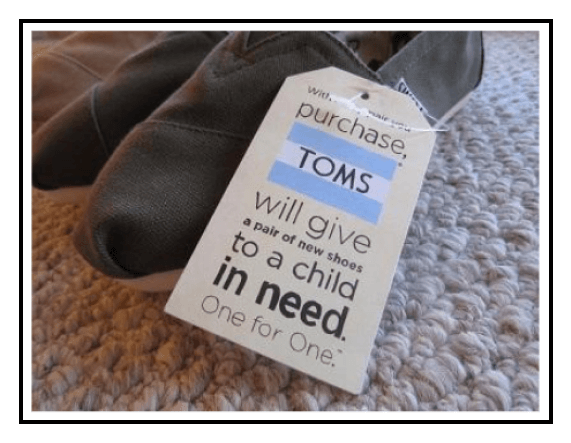
And this communication touched the hearts of celebrities as well. People like Anne Hathaway, Keira Knightley, and others joined the efforts that TOMS was making, becoming characters in their brand story, and representing the ideal customers for TOMS.
9) Glamnetic
Glamnetic is your go-to DTC store for nails, eyelashes, and brow makeup bundles. They are aptly named as different bundles that almost tell a story by themselves: Brat Bundle, Favorite, Weekender (perfect for the weekend), Sweater Weather (intended for the winters), Short and Sweet, Love at First Sip (which includes all the chocolatey like shades) and so on.
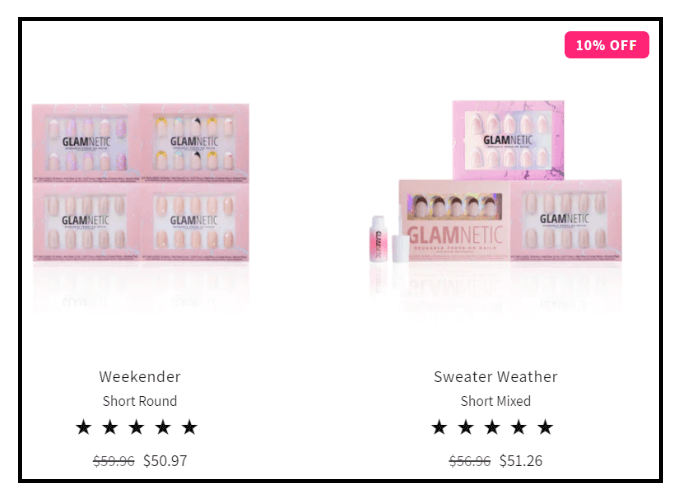
Every bundle tells a story and every nail and lash lineup is also creatively and aptly named so as to not only sound good but reduce analysis failure. A subscription deal is available at 60% off where the user will get the items delivered to their doorstep regularly. No more bad nail days! And the names make it easy for the customer to pick the bundles they want.

The mystery code is another little touch on their website, and this adds to the element of surprise or curiosity they generated earlier with their names. Also the line reading “READY TO UNLOCK YOUR…” could so easily end with “BEAUTY”. We think the necessary element for that to happen would be that you pick up a Glamnetic bundle. This is a great example of brand storytelling without even trying too hard!
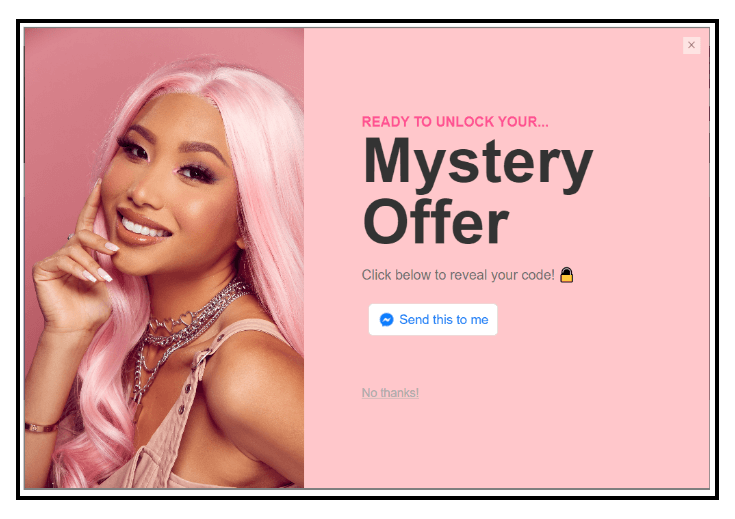
10) Liquid Death
So we saw how Blume focused on the pain points of their customers, and how Glamnetic made decisions easier but is there another approach to great storytelling? Liquid Death seems to think so. They carry off a very “unnecessary approach to bottled water” by describing more things that are unnecessary, making it hilarious, captivating, and very engaging. Clearly, Liquid Death is more than water, it is water and seltzer, but for Liquid Death, it is just water, and they unabashedly ask you to shop for water. The benefit: It’s from the Alps, not from a lab, as they say.
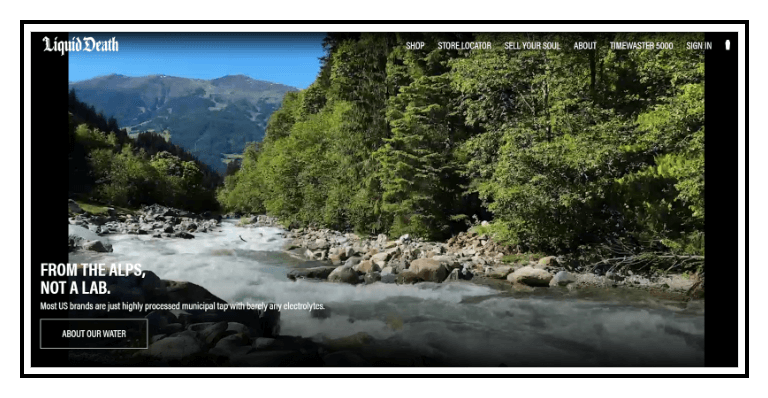
They also proclaim death to plastic in a typical Liquid Death manner, in a very Death and Gloom Metalesque, gothic style. Aluminum is very recyclable and plastic is shown as a monster. There couldn’t be a more imaginative way to sell water, and we can’t think of any more imaginative and emotional take on sustainability either.
Closing words
Those were some great examples of brand storytelling from DTC brands. Different DTC brands use different storytelling tactics to sell their products, tell their own stories, and make an impact on customers in their own way. Some use common themes like sustainability, ethics, and authenticity while others take a totally 90-degree approach, taking more fun and possibly even nonsensical route. No matter what route of brand storytelling you pick, make sure it is done so after careful research on what should work for your product. Also, in today’s world, sustainability is not an option; for most brands and the world in which they operate, it has become a necessity.
You may also like
Essential resources for your success
